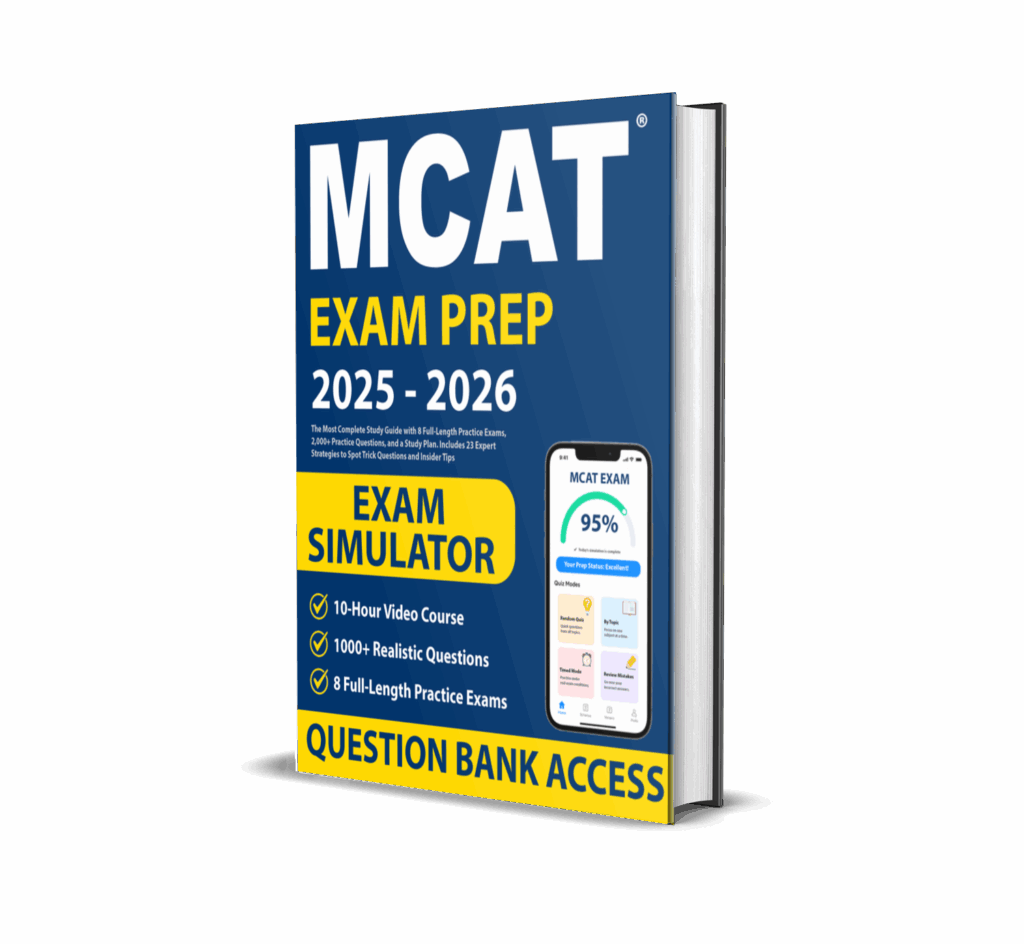
ARE YOU READY?
LET’S PRACTICE!
#1. Which of the following metabolic pathways occurs in the mitochondrial matrix?
#2. What is the most direct result of ADH (vasopressin) binding to its receptor in the collecting duct?
#3. Which enzyme is responsible for synthesizing RNA primers during DNA replication?
#4. Which of the following best describes the relationship between alveolar ventilation and CO₂ levels in the blood?
#5. Which of the following base pairings is held together by three hydrogen bonds?
#6. Which of the following best explains the resting membrane potential of a neuron?
#7. Which of the following amino acids is most likely to be phosphorylated?
#8. In which phase of meiosis do homologous chromosomes separate?
#9. What is the most likely effect of a mutation in the lacI gene in E. coli?
#10. Which structure in the ear is responsible for detecting rotational acceleration?
#11. Which of the following hormones is a steroid?
#12. Which process produces the most NADH per glucose molecule?
#13. What is the function of telomerase?
#14. In which part of the gastrointestinal tract does most water reabsorption occur?
#15. Which of the following statements about prokaryotic transcription is true?
#16. Which of the following molecules would passively diffuse across the plasma membrane most easily?
#17. What is the primary mechanism of heat exchange when sweating occurs?
#18. Which cell-cell junction allows ions to flow between adjacent cells?
#19. The role of the spindle apparatus in mitosis is to:
#20. What is the most likely consequence of inhibition of acetylcholinesterase?
#21. Which type of immune cell presents antigens to naive T cells?
#22. Which of the following components of blood is anucleated in humans?
#23. A mutation in which of the following structures would most likely affect translation?
#24. Which enzyme catalyzes the conversion of angiotensin I to angiotensin II?
#25. What kind of molecule is hemoglobin?
#26. The term “oncogene” refers to:
#27. Which sensory receptor is responsible for detecting stretch in muscle?
#28. In the Hardy-Weinberg equation, the term 2pq represents:
#29. A competitive inhibitor affects enzyme activity by:
#30. What is the function of the basal ganglia?
#31. What is the primary purpose of the lymphatic system?
#32. Which macromolecule is broken down by pepsin in the stomach?
#33. Which phase of the cell cycle is the most variable in duration?
#34. What causes the S1 heart sound?
#35. Which organelle is involved in apoptosis?
#36. Which of the following statements is true about histones?
#37. Which hormone regulates calcium by increasing bone resorption?
#38. Which molecule is directly involved in cross-bridge cycling in skeletal muscle?
#39. In signal transduction, what role does a kinase typically play?
#40. Which structure connects the hypothalamus to the pituitary gland?
#41. Which hormone is released in response to low blood glucose?
#42. The zona pellucida is:
#43. What is the primary function of the large intestine?
#44. Which of the following best describes a synapse?
#45. Which pathway bypasses the liver during circulation?
#46. The primary structure of a protein refers to:
#47. Which part of the nephron is impermeable to water?
#48. What is the pKa of an acid?
#49. Which of the following viruses uses reverse transcriptase?
#50. What initiates the power stroke in muscle contraction?


